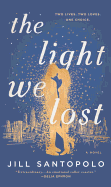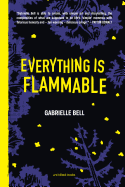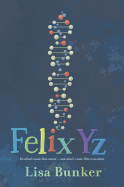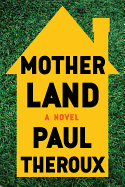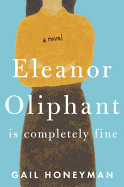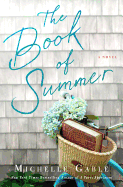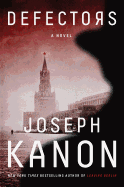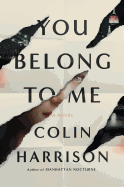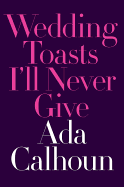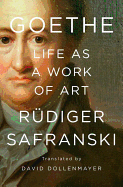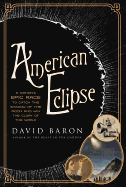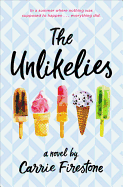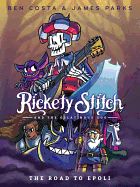Week of Friday, June 9, 2017
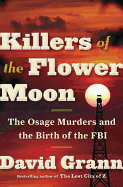 For the history buff, consider Killers of the Flower Moon: The Osage Murders and the Birth of the FBI (Doubleday) by David Graan. As their tribe numbers dwindle due to the buffalo population dying off, the Osage Nation negotiates a deal with the government for land in northeast Oklahoma. The tribe's lawyer secures mineral rights and, in 1894 when oil is discovered, the Osage are rich. Shortly thereafter, members begin to die under mysterious circumstances. Our reviewer calls it "the sterling history of this forgotten drama that precipitated the first successful major crime prosecution by J. Edgar Hoover's fledgling Federal Bureau of Investigation."
For the history buff, consider Killers of the Flower Moon: The Osage Murders and the Birth of the FBI (Doubleday) by David Graan. As their tribe numbers dwindle due to the buffalo population dying off, the Osage Nation negotiates a deal with the government for land in northeast Oklahoma. The tribe's lawyer secures mineral rights and, in 1894 when oil is discovered, the Osage are rich. Shortly thereafter, members begin to die under mysterious circumstances. Our reviewer calls it "the sterling history of this forgotten drama that precipitated the first successful major crime prosecution by J. Edgar Hoover's fledgling Federal Bureau of Investigation."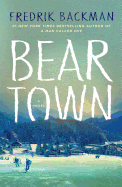 A fatherly fiction fan will enjoy Fredrick Backman's new novel, Beartown (Atria). If a deteriorating city's junior-level hockey team wins the national semi-finals, they could bring a hockey academy and a new arena (with jobs, prosperity and pride) to a town in desperate need of hope. With everything riding on a team of teenage boys, one fateful night will change everything.
A fatherly fiction fan will enjoy Fredrick Backman's new novel, Beartown (Atria). If a deteriorating city's junior-level hockey team wins the national semi-finals, they could bring a hockey academy and a new arena (with jobs, prosperity and pride) to a town in desperate need of hope. With everything riding on a team of teenage boys, one fateful night will change everything.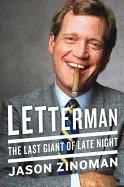 Tickle your father's funny bone with Letterman: The Last Giant of Late Night (Harper) by Jason Zinoman. Notorious for being as witty onscreen as he was difficult off, David Letterman spent 33 years as king of the late-night talk show. This biography includes material from interviews with the man himself as well as his writers, producers and others who worked closely with him. Letterman is a frank tribute to the painful process of creating comedy.
Tickle your father's funny bone with Letterman: The Last Giant of Late Night (Harper) by Jason Zinoman. Notorious for being as witty onscreen as he was difficult off, David Letterman spent 33 years as king of the late-night talk show. This biography includes material from interviews with the man himself as well as his writers, producers and others who worked closely with him. Letterman is a frank tribute to the painful process of creating comedy.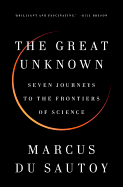 The Great Unknown: Seven Journeys to the Frontiers of Science by Marcus du Sautoy (Viking) is perfect for the science-minded dad. "Du Sautoy investigates the frontiers of mathematical and scientific ideas, sorted into broad concepts such as Chaos, Matter, Consciousness and Infinity, and set in the context of history, evolution, philosophy, literature and music." Exploring the potential limits of human knowledge with a clear, concise, and entertaining voice, this is a great gift for anyone with curiosity about scientific inquiry and the deep mysteries of the universe.
The Great Unknown: Seven Journeys to the Frontiers of Science by Marcus du Sautoy (Viking) is perfect for the science-minded dad. "Du Sautoy investigates the frontiers of mathematical and scientific ideas, sorted into broad concepts such as Chaos, Matter, Consciousness and Infinity, and set in the context of history, evolution, philosophy, literature and music." Exploring the potential limits of human knowledge with a clear, concise, and entertaining voice, this is a great gift for anyone with curiosity about scientific inquiry and the deep mysteries of the universe.
The Light We Lost
by Jill Santopolo
Lucy and Gabe met as Columbia University students on 9/11, when emotions were running high and "our shields were down." After spending a very intense day together, however, Gabe reunites with an ex, and Lucy doesn't see him again until graduation, and it's only for a brief moment.
Almost a year later, they run into each other once more, and this time they embark on a passionate relationship. But their desire to effect positive change in the world--a yearning sparked by what they witnessed on 9/11--means career choices that won't allow both to stay in Manhattan. Gabe goes overseas and Lucy meets someone else, but they keep in touch through life changes big and small, wondering if they've made the right decisions and what their dreams may have cost them.
Spanning 13 years, Jill Santopolo's The Light We Lost is a beautiful, thought-provoking exploration of life choices, and how attaining one's dreams can be euphoric and gut-wrenching at the same time. Lucy and Gabe's love is both idealistic and realistic; Santopolo puts them in situations where there are no easy answers. Should one choose a dream job offer or true love? Who must do the sacrificing or compromising? If you know a relationship would be once in a lifetime but finite, and soul-crushing when it ends, would you jump in anyway? Don't read the promotions comparing this to other popular novels, for that might spoil the ending. But even if that happens, the emotional journey is worth it. --Elyse Dinh-McCrillis, blogger at Pop Culture Nerd
Discover: Two people remain entwined in each other's lives over 13 years, long after the end of their love affair.
Mother Land
by Paul Theroux
A familiar cringe may occur when reading Paul Theroux's sprawling family drama Mother Land. The well-known author of both fiction (The Mosquito Coast) and travelogue nonfiction (Deep South) delivers what is perhaps his most personal novel: an engrossing, emotionally tangled and often merciless examination of family and self.
Theroux builds his characters around the seasons of their Cape Cod hometown, including seven bickering siblings, a bemused father and, at the center of it all, a scheming matriarch, who is simply referred to as "Mother." From the onset, it's clear this New England family is unwieldy and dysfunctional, characterized by "a noiseless bewilderment and uncertainty, the vibrant presence of low-pitched rivalries." These muted tensions break open in adulthood as the brothers and sisters try to escape the grasp of family life. Nowhere is this break more painfully clear than when the narrator--a writer who bears a striking resemblance to Theroux--has one of his books ripped apart in a review written by his own brother Floyd, a poet and professor.
The hostility is rendered with Theroux's trademark perceptiveness, if a bit more bitterly here than in other works. There are times he exhausts his own conceits, such as the comparisons of Mother to a cold-blooded queen or his siblings to feuding tribes-people, but mostly his prose succeeds. It excels when evoking the setting and weather. With painterly effect, he ties the Cape's harsh winters, muddy springs and splendid summers to the changing moods of his characters' relationships. Mother Land is a bittersweet, brutally frank family saga that offers enough redemption to make the journey worth it. --Scott Neuffer, freelance journalist, poet and fiction author
Discover: Famed travel writer Paul Theroux explores the far reaches and dark corners of family life in this introspective novel.
Eleanor Oliphant Is Completely Fine
by Gail Honeyman
Thirty-year-old Eleanor Oliphant is a creature of habit who keeps to herself. Plagued with a facial scar and often donning white gloves to conceal flares of psoriasis, the bright, articulate yet lowly office worker lives alone in a small Glasgow flat. She has managed to survive and circumvent the horrors of her early life--including stints in foster care--by taking comfort in books, doing crossword puzzles, watching the BBC, having a weekly chat with her cruel and demeaning "Mummy" and indulging in vodka on a regular basis. When Eleanor develops a crush--from afar--on a singer in a local rock band, she embarks on a self-improvement crusade that includes hilarious firsts in bikini waxing, manicures and becoming techno-literate in computers and smartphones. Along the way of her transformation, she crosses paths with warmhearted Raymond, who works in the IT department of her company. As the two are leaving the office one day, they stop to help an elderly man who has collapsed in the street. This simple act upends Eleanor's life in enlightening and challenging ways.
Eleanor Oliphant Is Completely Fine, Gail Honeyman's intriguing, hopeful first novel, explores the power of kindness and how unexpected friendships can liberate lives. Eleanor's lovable, eccentric and original narrative voice is entrancing. It draws readers fully into her damaged, unconventional psyche as she is forced to deal with a deeply repressed past and come to grips with who she is, and who she'd like to be. --Kathleen Gerard, blogger at Reading Between the Lines
Discover: An isolated young woman is liberated from a sad, damaged past via the unexpected kindness and caring of new friends.
The Book of Summer
by Michelle Gable
Michelle Gable (A Paris Apartment; I'll See You in Paris) turns to Nantucket in The Book of Summer. Bess Codman, whose marriage has disintegrated in San Francisco, is heading back to Massachusetts to pry (hopefully) her stubborn mother, Cissy, out of the family's summer home before it kills her. The bluff beneath Cliff House is crumbling away; the swimming pool and lawn are gone, as is half of the back veranda. Cissy refuses to leave the house, however, insisting she'll find a way to save it.
As she tries to cajole her mother into packing, Bess comes across "The Book of Summer"--a combination guestbook and diary that her great-grandmother started when the house was built 99 years earlier. As Bess pages through the entries, she discovers that history has repeated itself quite often, with her grandmother Ruby, Cissy and herself facing similar predicaments in life and love.
Alternating primarily between the story of Bess in the present and Ruby during World War II, The Book of Summer is delightful. The three main women in the story are quirky creatures with major differences, but their family bond shines through, making this a charming, profane, funny and touching read. Spitfire Cissy, the middle generation, has a lot to teach her mother and her daughter, even if the lessons aren't easy. A perfect book to bring to the beach, Michelle Gable's fourth novel is sure to appeal to readers of Elin Hilderbrand and Kristan Higgins. --Jessica Howard, blogger at Quirky Bookworm
Discover: A woman finds love and reconnects with her mother as her family's Nantucket beach home crumbles away.
Mystery & Thriller
Defectors
by Joseph Kanon
Thriller writer Joseph Kanon (Leaving Berlin) infiltrates period and locale as if he were an experienced spy, and Defectors nimbly captures an era: Moscow at the peak of the Cold War, where a turncoat CIA agent has lived for 12 years under the watchful eye of the KGB.
Defector Frank Weeks was big news when he slipped out of the United States in 1949, a rising star of the new CIA, exposed as a Communist spy. He escaped Hoover and treason charges, but left his family behind--including his brother, Simon, who worked for the State Department and unwittingly fed Frank intelligence information. With a traitorous brother, Simon had to resign from State and join his father-in-law's publishing company. Twelve years later, the publisher pays the Russians for access to Frank, and Simon travels to Moscow as editor of Frank's memoirs. The CIA has conceded to freedom of the press, but is monitoring the project.
Simon's anxieties are substantial and the brothers' reunion is infused with intrigue. Who is Frank now, and can he be trusted? Will his wife, once close to Simon, confide in him? Frank's associate Boris is always within earshot, though his role remains unclear to Simon. An American reporter shows up attempting to discover the truth about a nuclear scientist's sudden death in the dacha next to Frank's. Simon is on guard, but is unprepared for Frank's announcement: he's orchestrating a defection back to the U.S. Soon Simon is a player in Frank's plan, a race involving the CIA, the KGB, deceit, high-speed car chases and a heartbreaking truth. --Cheryl Krocker McKeon, manager, Book Passage, San Francisco
Discover: In 1961 Moscow, brothers--one a defector from the CIA and the other an American publisher--play a cat-and-mouse game of political intrigue.
You Belong to Me
by Colin Harrison
You Belong to Me is steeped in the stewpot of Colin Harrison's New York City--each of its chapters is titled with a location described as a local might, e.g., Chapter 1: "West Forty-Ninth Street between Fifth and Sixth Avenues." "Crime novel" is perhaps too restrictive a label for Harrison's story of money, power, sex and the obsession to possess--both objects (rare maps) and people (spouses, family and friends).
Twice-divorced and in his 50s, with "some money but not big money... rumpled and wrinkled, his best years already behind him," Paul Reeves runs a lucrative boutique immigration law firm and collects old maps of New York City--a long-sought 1766 Stassen-Ratzer is on the market for the first time. His neighbors in his high-rise apartment building are 32-year-old Iranian American financier Ahmed Mehraz and his trophy wife, Jennifer. When former baseball phenom Billy Wilkerson arrives to rekindle the passionate romance he had with "Jenny" in their late teens and to take her back to Texas, her comfortable marriage begins to unravel. Who better to turn to for help than her quiet, reliable neighbor Paul? With Paul competing with another mysterious bidder to lock up the Stassen-Ratzer purchase, and concealing Jennifer and Billy's affair to avoid Ahmed's network of mercenary operatives, You Belong to Me ratchets up the action and intrigue.
Harrison loads his New York City fiction with historical, geographical and ephemeral background, but the city's underbelly of violence and menace is never far away. You Belong to Me is a solid addition to what has become Colin Harrison's own particular brand of New York City noir. --Bruce Jacobs, founding partner, Watermark Books & Cafe, Wichita, Kan.
Discover: Harrison's New York City noir explores the city's obsession with possession, and the jealousy and violence that come with it.
Graphic Books
Everything Is Flammable
by Gabrielle Bell
The first full-length graphic memoir by writer and cartoonist Gabrielle Bell, Everything Is Flammable is an emotionally raw account of the year she helped her mother rebuild after a candle-lit fire destroyed Bell's childhood home in rural Northern California. Bell's comics up to this point have provided glimpses of her professional and personal life as a starving artist in New York. Her trademark ennui and self-deprecating humor remain on full display here, yet Bell exposes personal vulnerabilities and family dysfunction. The flashbacks to her childhood are rooted in discomfort: a reclusive and semi-feral adolescence in the wild, the trauma of a verbally explosive stepfather, and the conflict and pain forming a tight wire of emotions she endures with her mother.
Bell (The Voyeurs) maintains a wide-eyed optimism tempered by experiential wisdom. Her initial enthusiastic support of Gus--the squatter and ex-con acting as a jack-of-all-trades handyman for her mother after the fire--soon turns to doubt when her mother expresses distrust of his intentions. After a heart-to-heart with Gus, Bell realizes the misgivings spring from a fear of aging and the accompanying loss of self-sufficiency. Aging develops as a centerpiece of Bell's own social outlook: "I am trying my best to resist becoming an eccentric recluse. I'm not rich or famous enough to turn my back on it all. But sometimes it feels like the whole world is conspiring to encourage my anti social tendencies."
The art is simple, but layered mini-stories within the larger narrative add complexity. Its sheer candor is like a window into how one family works, making Everything Is Flammable all the more rewarding. --Nancy Powell, freelance writer and technical consultant
Discover: Gabrielle Bell's first full-length graphic memoir is an intensely emotional portrait of pain and conflict within a family after a tragic loss.
Biography & Memoir
Wedding Toasts I'll Never Give
by Ada Calhoun
Reflecting on dozens of wedding toasts she's heard over the years, Ada Calhoun (St. Marks Is Dead) writes, "Finding something new or helpful to say about marriage feels borderline impossible." Where unspoken rules dictate that wedding toasts focus on the happily-ever-afters of marriage, however, the essays in Calhoun's collection, Wedding Toasts I'll Never Give, don't conform to that. That's precisely why Calhoun succeeds in doing what she calls impossible: writing about modern marriage in ways that are new or helpful (or both).
With humor and remarkable candor, Calhoun writes about "soul mates," infidelity, what it takes to stay married and what staying offers in return. Much of her writing is based on her own experiences, which makes the collection intimate and heartfelt (though it also means much of the focus is on straight marriages). Combining the personal with thoughts from priests, therapists, literature, friends and family, Calhoun considers big catastrophes and small moments of joy in equal measure--an accurate reflection of the ups and downs and day-to-day routines that make up any marriage.
Calhoun was once told, "We have to hold so many realities at once: here's me, here's you, here's us, here's the rest of the world." The essays in Wedding Toasts I'll Never Give offer insight into Calhoun's realities: herself, her husband, her marriage. And in exploring how those pieces fit into the rest of the world, Calhoun's essays will prove meaningful for any who have chosen to walk down the aisle--for better and worse. --Kerry McHugh, blogger at Entomology of a Bookworm
Discover: Ada Calhoun's heartfelt collection of personal essays explores marriage in the modern day.
Goethe: Life as a Work of Art
by Rüdiger Safranski, transl. by David Dollenmayer
German philosopher Rüdiger Safranski (Romanticism: A German Affair) achieves serious artistic and intellectual heights in his epic biography of Johann Wolfgang von Goethe.
Translated into English by David Dollenmayer, Goethe: Life as a Work of Art is an amazingly detailed and comprehensive study of the 18th-century playwright, poet and novelist often considered "the Shakespeare of German literature." Safranski supplements his scholarship with Goethe's own words, including excerpts from his autobiography, letters to friends and family, and various poems. He expertly layers exegesis of Goethe's major works with biographical and historical exposition, resulting in a thorough understanding of Goethe's development as an artist and thinker. The curve of this development is striking in the way it belies popular conceptions of Goethe, who's often seen as a pioneer of Romanticism. Safranski reveals a writer of great emotion and genius tempered by skepticism and introspection, who slowly turns away from the sentimentalism of his age and toward the quieter revelations of the natural sciences. Safranski devotes as much time to Goethe's scientific treatise Theory of Colors as he does to Faust and The Sorrows of Young Werther.
Goethe: Life as a Work of Art also succeeds on another level. Safranski, who has written biographies of Friedrich Nietzsche and Arthur Schopenhauer, uses Goethe's life to explore and expound on a number of philosophical ideas and aesthetic theories. "Everyone must sense and find their own God, which means nothing more than grasping the guiding principle of their life," he writes after paraphrasing Goethe's conception of divinity. In this way, Goethe: Life as a Work of Art transcends biography and becomes a compelling overview of German philosophy. --Scott Neuffer, freelance journalist, poet and fiction author
Discover: Fans of German literature and philosophy will find plenty to ponder in this impressive biography of Johann Wolfgang von Goethe.
Science
American Eclipse: A Nation's Epic Race to Catch the Shadow of the Moon and Win the Glory of the World
by David Baron
When science journalist David Baron (The Beast in the Garden) viewed a total solar eclipse for the first time, he was surprised by his passionate response. "For three glorious minutes... my consciousness departed the earth and I gaped at an alien sky." That experience made him a devoted eclipse chaser, and eventually led him to the story of the eclipse that was visible from the United States' Wild West in 1878.
In the late 19th century, eclipses were not only a rare spectacle, but an exceptional opportunity for American astronomers, too. They could study the bodies of the solar system and the chemical composition of the sun, and prove themselves the scientific equals of their European counterparts. Congress reluctantly funded an expedition, and independent teams as well as mobs of tourists swarmed west for the great 175-second (or less) event. Baron builds his story around three vivid figures: young Thomas Edison, who assembled a "tasimeter" to measure the heat of the stars; Maria Mitchell, an adored astronomy professor at Vassar College who headed an all-woman team; and James Craig Watson, a competitive, unscrupulous astronomer who had discovered a record number of asteroids.
Baron mingles the excitement, aspiration and drama of these events with a good dose of technical information and scientific history. Archival photos, sketches and prints are scattered throughout the pages. This is a wonderful, dramatic piece of scientific history, and a fine companion for eclipses to come. --Sara Catterall
Discover: This dramatic episode in U.S. scientific history is told through the stories of three scientists who traveled West to view the total solar eclipse of 1878.
Children's & Young Adult
Felix Yz
by Lisa Bunker
As long as Felix Yz can remember, Zyx, a fourth-dimension alien, has been living inside him. When Felix was three years old, an experiment his scientist father was working on went terribly awry, resulting in his father's death and the accidental fusing at the atomic level of Zyx with Felix. While Zyx is incredibly intelligent, the presence of this otherwordly being inside Felix makes the boy, now 13, walk and talk abnormally. People outside his family think he's strange and call him vicious names.
As if that weren't enough to tax Felix's existence, doctors believe Zyx's presence will eventually kill Felix, so a de-fusing procedure is planned. But the process for separating human and alien has never been done, and there are no guarantees. Either way, Felix stands a strong chance of dying soon, so he decides to keep a secret blog chronicling what may be his final 29 days as he counts down to "Zero Day."
Lisa Bunker's clever science fiction debut is heartwarming and witty. Felix's looming high-stakes procedure creates a sense of suspense, while the push and pull between Felix and his alien guest incubates humor, compassion and ingenuity:
"Good night, Zyx."
"good night"
"Sweet dreams, don't let the bedbugs bite."
"question mark"
"Never mind. Good night."
"zyx love felix"
"Sure. Thanks."
Bunker probes the theme of being different, celebrating the singularity of her characters but recognizing the struggle it creates, especially when you're a junior high boy. The marvelously diverse cast of Felix Yz is certain to charm audiences and leave them eagerly anticipating what Bunker will deliver next. --Jen Forbus, freelancer
Discover: A depressed teenage boy who was accidentally melded with a fourth-dimensional alien chronicles what may be the final month of his life.
The Unlikelies
by Carrie Firestone
Sadie Sullivan begins the summer before senior year with low expectations. All her friends have graduated and gone off to camp jobs and vacations, leaving her behind with the "gadflies," her name for girls who "hung around like insects, buzzing in tightly drawn circles, gossiping and side whispering and basically being petty, drama-slinging troublemakers." Her plans are to work at a farmstand near her Long Island, N.Y., home and mope. But on her second day, she saves a baby from a drunk and unhinged man, getting badly beaten in the process. A bystander captures the incident on a phone, and the rest is viral YouTube history. At a Homegrown Hero luncheon Sadie meets four other "heroes." The five instantly develop an easy friendship, in spite of socioeconomic, ethnic and cultural differences, and soon are planning ways to right some wrongs in their community and beyond. They start by posting positive messages on a blog set up by an unpopular boy, countering the cruel ones that online trolls have left. An unexpected windfall for Sadie, bequeathed by an elderly man who witnessed the farmstand attack, ups the ante for the five, who call themselves The Unlikelies. But can money and positive messages really solve all the problems of troubled people?
Carrie Firestone (The Loose Ends List) weaves together humanitarianism, friendship, love, heartbreak and good old-fashioned summertime fun in her exquisite novel. The Unlikelies are sweet, sharp-witted and authentic, and their do-good instincts are never mawkish or saccharine, whether they're addressing body shamers or drug addicts. Odds that this will be a YA favorite? Likely. --Emilie Coulter, freelance writer and editor
Discover: Five diverse teens seek ways to defeat the trolls and bad guys through good deeds, but learn that some problems are simply too big to fix.
Rickety Stitch and the Gelatinous Goo Book 1: The Road to Epoli
by Ben Costa and James Parks
Rickety Stitch lives in a world of imps, unicorns and gnomes, but as a skeleton with a soul, he's the odd one out. Other skeletons are passive "workin' machines," but he's prone to dozing off, cracking wise and "inciting a mutiny with song and dance." After these and other bad habits lead Rickety Stitch and his friend the Gelatinous Goo to be unceremoniously fired from their job at Subterranean Pits and Lairs LLC, they begin a quest to find out who Rickety was when he was alive. With little to go on but vague scraps of music, Rickety and Gooey are thrust into the vivacious and unruly world of Eem in search of Epoli, a place they know only through Rickety's dreams.
Ben Costa and James Parks have been creating Eem together for years online, and their solid world-building strengthens every panel of Rickety Stitch and the Gelatinous Goo. Though Costa's full-color, jaunty illustrations may appeal to younger readers, due to a healthy dose of cartoon violence and adult humor ("I still have, like, six days of PTO left"), the book is definitely meant for teens and adults. The goofy jokes leavened with existential musings recall Terry Pratchett and Patricia Wrede, and well-read fans of fantasy will appreciate the loving homage to the genre. "You are someone, Rickety Stitch. That much I know," the skeleton is told toward the end of the story--Rickety and his readers will have to wait for the second installment to find out who. --Stephanie Anderson, assistant director for public services, Darien Library (Conn.)
Discover: Ben Costa and James Parks launch their skeleton bard and his gelatinous buddy on a grand graphic adventure that's just the right mixture of serious and silly.


